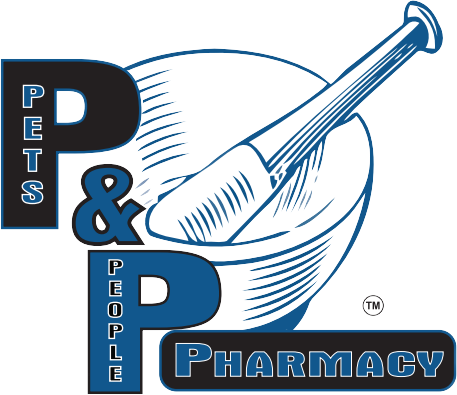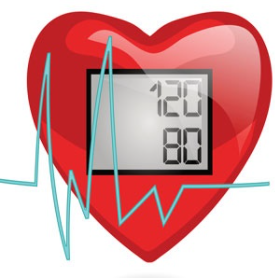High blood pressure, also called hypertension, refers to blood pushing against the walls of the arteries with chronically elevated force. Blood pressure that rises above normal levels and remains high can lead to serious health problems including heart attack, heart failure, stroke and kidney failure as well as other health problems. High blood pressure is defined by stages:
- Healthy - blood pressure of 120/80 mm Hg
- Elevated - systolic pressure between 120-129 mm Hg and diastolic pressure less than 80 mm Hg
- Stage 1 Hypertension - systolic pressure 130-139 mm Hg or diastolic pressure between 80-89 mm Hg
- Stage 2 Hypertension - systolic pressure 140 mm Hg or higher or diastolic pressure 90mm Hg or higher
- Hypertensive Crisis - systolic pressure greater than 180 mm Hg or diastolic pressure over 120mm Hg. This is a medical emergency.
In blood pressure measurement the top number, known as the systolic pressure, represents the pressure within the arteries when the heart contracts, or “beats” while pumping blood. The second number, diastolic pressure, represents the pressure in the arteries when the heart relaxes between beats and fills with blood. Hypertension is often called a “silent killer” because even severe, uncontrolled high blood pressure often has no obvious symptoms. However, even when absolute blood pressure levels are only moderately elevated, patients may report headaches, dizzy spells, or nosebleeds. In general, however, these symptoms do not occur unless there has been a rapid, acute change in blood pressure, or until blood pressure has reached dangerous levels.
Causes
- Stress: stress can cause the release of stress hormones like cortisol that can cause arteries to constrict and to maintain a more rigid tone.
- Excessive salt consumption: The sodium in regular table salt can cause excess water retention, expands blood volume and ultimately increases blood pressure. Unrefined sea salt contains many other minerals that the body needs and does not have the same negative effects as iodized salt. Unrefined sea salt is not as high in iodine and therefore you may need another source of iodine, but it is a great alternative to regular table salt.
- A diet low in calcium, magnesium and potassium: these minerals are particularly important in the body and play a significant role in blood pressure regulation.
- Insulin resistance: This condition can increase blood pressure by various mechanisms including increased systemic inflammation and sodium retention as a result of kidney damage.
- Excessive alcohol intake: defined as drinking in excess of two drinks daily for men under age 65, or in excess of one drink daily for women or men over age 65.
- Being overweight and Obesity: Excess weight puts you at risk for the development of hypertension.
- Medications: Some prescription drugs, including steroids, birth control pills, decongestants, NSAIDS and diet pills can raise blood pressure. Some over-the-counter medicines may also raise blood pressure.
- Processed food: these foods that many times contain high fructose corn syrup may contribute to gout attacks and increase your blood pressure without you knowing it.
- Dehydration: not drinking enough water can contribute to elevated blood pressure. There are many drugs that are used to treat hypertension effectively but may have unwanted side effects.
Most cases of hypertension are probably diet related. Significant changes in your diet may lower your blood pressure without the need for prescription drugs. Making these changes may allow you to lower your dose or get off of drug therapy all together. We do not recommend that you stop blood pressure meds without consulting your physician. What we do recommend is that you try these options and keep a diary of your blood pressure readings. Take two to three readings per day for a week prior to beginning these modifications and then record the readings after you start for at least a month and note the difference. After two or three months, it may be time to talk with your physician.
Recommendations
- Diet - Eat a diet high in green vegetables and low in processed foods. Raw spinach and celery are examples of veggies that are either high in magnesium or potassium. Both can help to decrease blood pressure.
- Water - drink more water. Dehydration can cause numerous deleterious health effects and may cause changes in the dynamics of blood composition.
- Magnesium supplements - taking the right form of magnesium can help reduce blood pressure. It relaxes muscles that allow blood vessels to dilate and ultimately lowers blood pressure. Again, it has to be the correct form. There are other supplements that may help lower pressure also.
- Exercise - losing weight is an effective way of reducing blood pressure. Also, carrying too much weight around your waist increases your risk of having high blood pressure
- Lower Alcohol Intake - Reduce your alcohol intake. More than moderate amounts of alcohol can increase blood pressure and it can also reduce the effectiveness of some blood pressure medicines.
- Quit Smoking - it helps to lower blood pressure and reduce the risk of heart disease.
There are other options, but there is no magic bullet or supplement for reducing blood pressure. One of these recommendations alone is probably not going to be enough to reduce your blood pressure enough to stop taking medicine. It will take a combination of these recommendations and dedication. This is really a lifestyle disease and until you decide to make significant changes in your lifestyle then you will always suffer from hypertension. As always consult your doctor before trying anything new.

